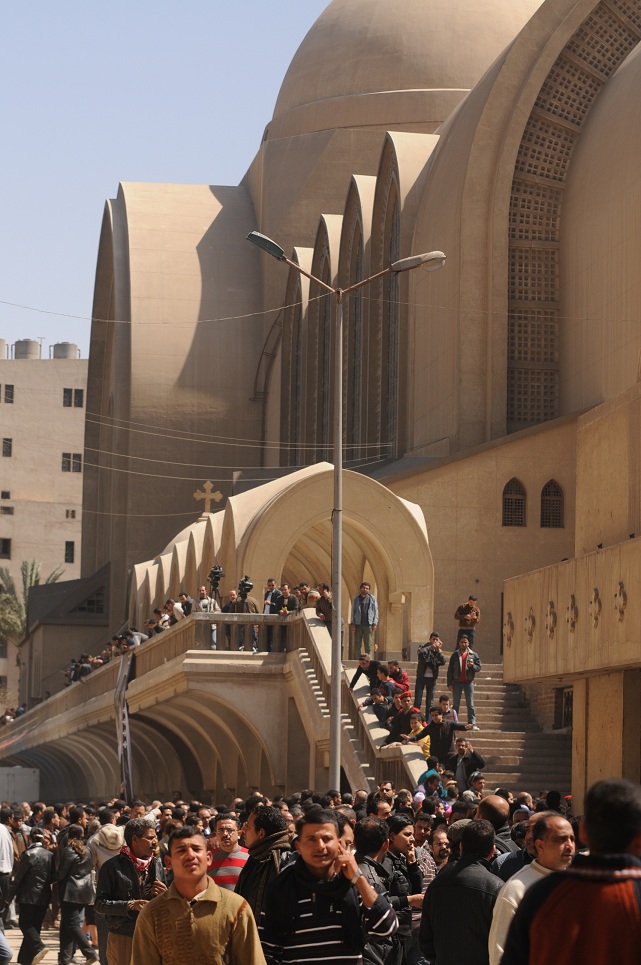SIRTE: Anti-Qaddafi fighters overran Sirte’s port on Tuesday, scoring a strategic victory in their battle for control of the defeated Libyan leader’s birthplace, his loyalists’ most important bastion.
In their other main redoubt of Bani Walid, however, Moammer Qaddafi’s forces returned to the offensive after loyalist radio in the desert town broadcast a message from the fugitive strongman rallying resistance to a weeks-long siege by National Transitional Council forces.
And a member of the NTC said that formation of a transitional government, alread delayed by squabbling over power-sharing, has been postponed until the entire country is liberated.
Hundreds of fearful civilians have fled Sirte, a Mediterranean city 360 kilometres (225 miles) east of Tripoli, as the new regime’s forces close in from east, south and west.
As the NTC troops zeroed in on the centre of the sprawling city, where Qaddafi diehards have been putting up a fierce resistance, the threat of intense street fighting hung over the remaining residents.
"There were clashes in the night and we now are controlling the port," said Commander Mustafa bin Dardef of the NTC’s Zintan Brigade.
NTC troops said fighting raged on Tuesday morning around Sirte’s Al-Batahady University where they had come under sniper fire from pro-Qaddafi forces hidden on the campus.
Dr Yusuf al-Badri said the overnight clashes were the fiercest so far in the battle for the city.
"Today’s level of casualties was intense. We had some 40 fighters being treated of whom two died," he said, adding that the average number of casualties in recent days had been around 20.
A third slain NTC fighter was stretchered in shortly after he spoke.
The port and university lie on the northeastern side of Sirte but it is in the centre that Qaddafi’s compound and military bunkers lie and NTC fighters said they expected the fiercest resistance.
"As we move closer to the city centre, it’s going to be face-to-face street fighting and we are preparing for it," said one fighter, Ali Zaidi.
Fleeing residents spoke of dwindling supplies of food and water and said Qaddafi forces were trying to prevent people from leaving.
Doctors warned of a growing humanitarian crisis.
"There’s no food, no electricity, we were eating just bread," said Saraj al-Tuweish, who got out with his extended family of some 60 people on Tuesday.
On Monday, some 2,000 fleeing civilians registered on the western coast road out of Sirte alone, but by midday (1000 GMT) on Tuesday just 30 families had got out.
"I’ve been trying for 10 days to get out and every time the army forced us back," Tuweish told AFP.
"We would go the checkpoint and they would refuse, they would shoot in the air. Today we used a dirt road early in the morning and we managed to escape."
The collapse of the mains supply has left residents without access to clean drinking water, triggering an epidemic of water-borne diseases.
An AFP correspondent saw dozens of children receiving treatment at a clinic in the town of Harawa, 40 kilometers east of Sirte.
"We have medicines but no nurses to treat the constant flow of patients, mainly children, suffering from vomiting and gastrointestinal diseases,"
said Dr Valentina Rybakova, a Ukrainian working in Libya for eight years.
"This is a big humanitarian crisis. We are trying to get help from everybody but the main problem is that these people have no access to clean drinking water," she said.
In Qaddafi’s radio message, a transcript of which was carried by a loyalist website, the toppled strongman said he was still fighting on the ground and was ready to die a martyr.
"Heroes have resisted and fallen as martyrs and we too are awaiting martyrdom," the fugitive Qaddafi said.
The toppled despot hailed the fierce resistance put up by Bani Walid, which had been a major recruiting ground for his regime’s elite army units.
"You should know that I am on the ground with you," he said. "Through your jihad, you are imitating the exploits of your ancestors."
NTC fighters said they had stalled their offensive in Bani Walid due to the fierce resistance of the Qaddafi loyalists.
"NTC fighters pulled out from some areas they control in Bani Walid due to the intensity of fire," said NTC official Abdallah Kenshil, who was the new government’s chief negotiator in abortive efforts to broker the town’s surrender.
NATO said its warplanes had targeted Qaddafi forces in both Bani Walid and Sirte on Monday, hitting two bunkers and a firing point in the former and a command and control node and a storage facility in the latter.
In Benghazi, meanwhile, an NTC member said Libya’s new rulers have decided to postpone formation of a transitional government until the entire country is liberated from Qaddafi loyalists.
"Consultations have led to a decision to postpone the formation of a government until after liberation," Mustafa el-Huni said.
On Saturday, NTC chief Mustafa Abdel acknowledged that "differences in views" between members of the NTC and the executive council had delayed a deal.


